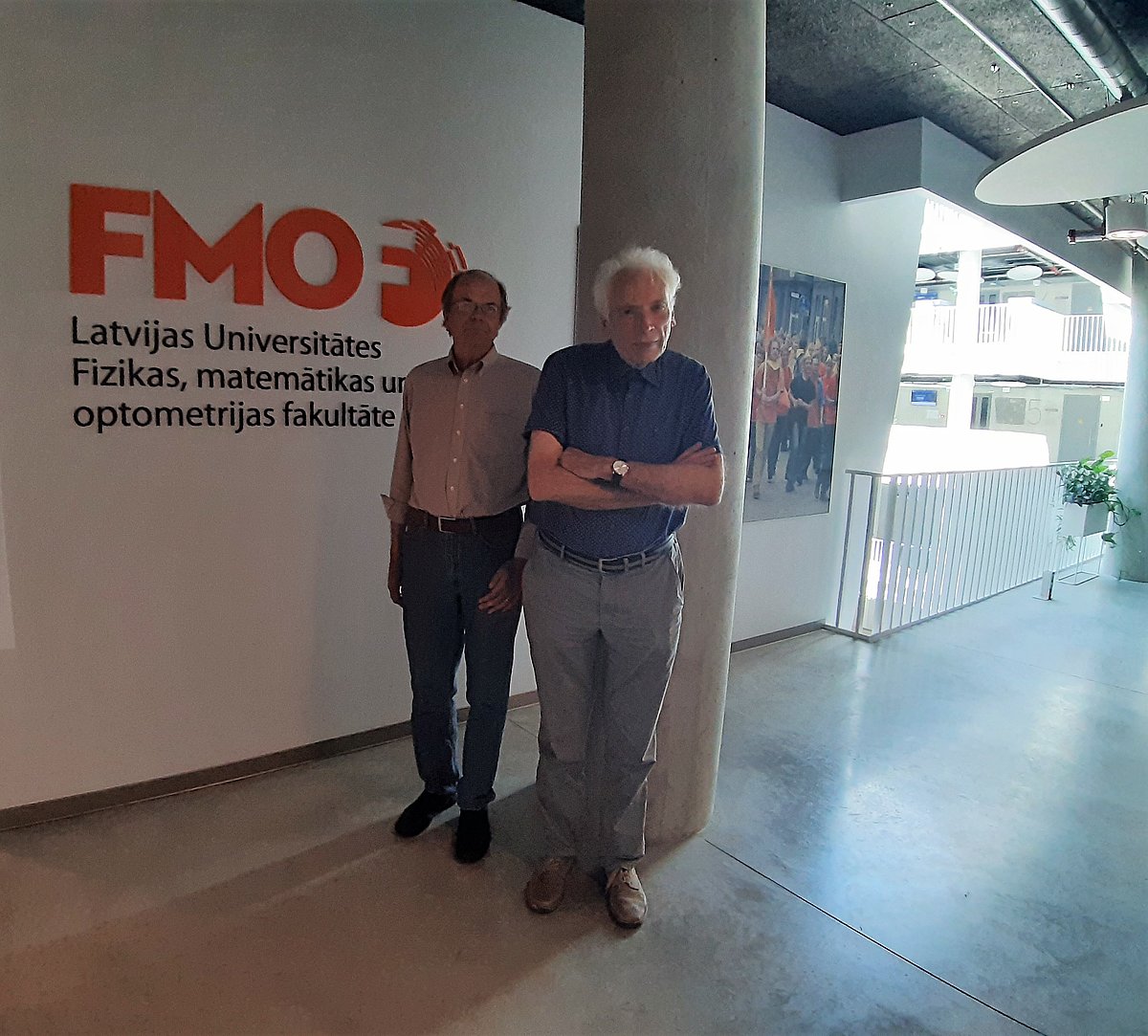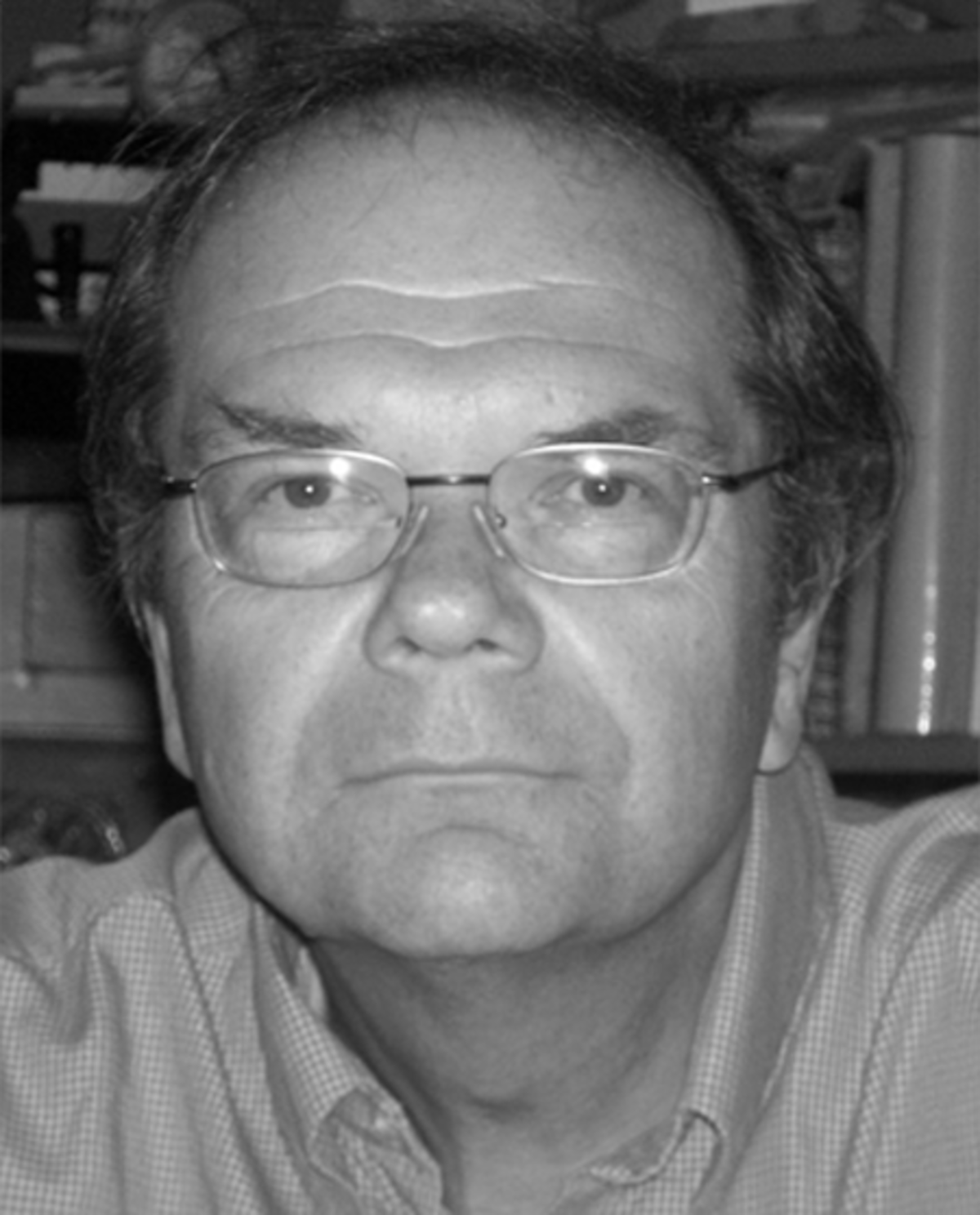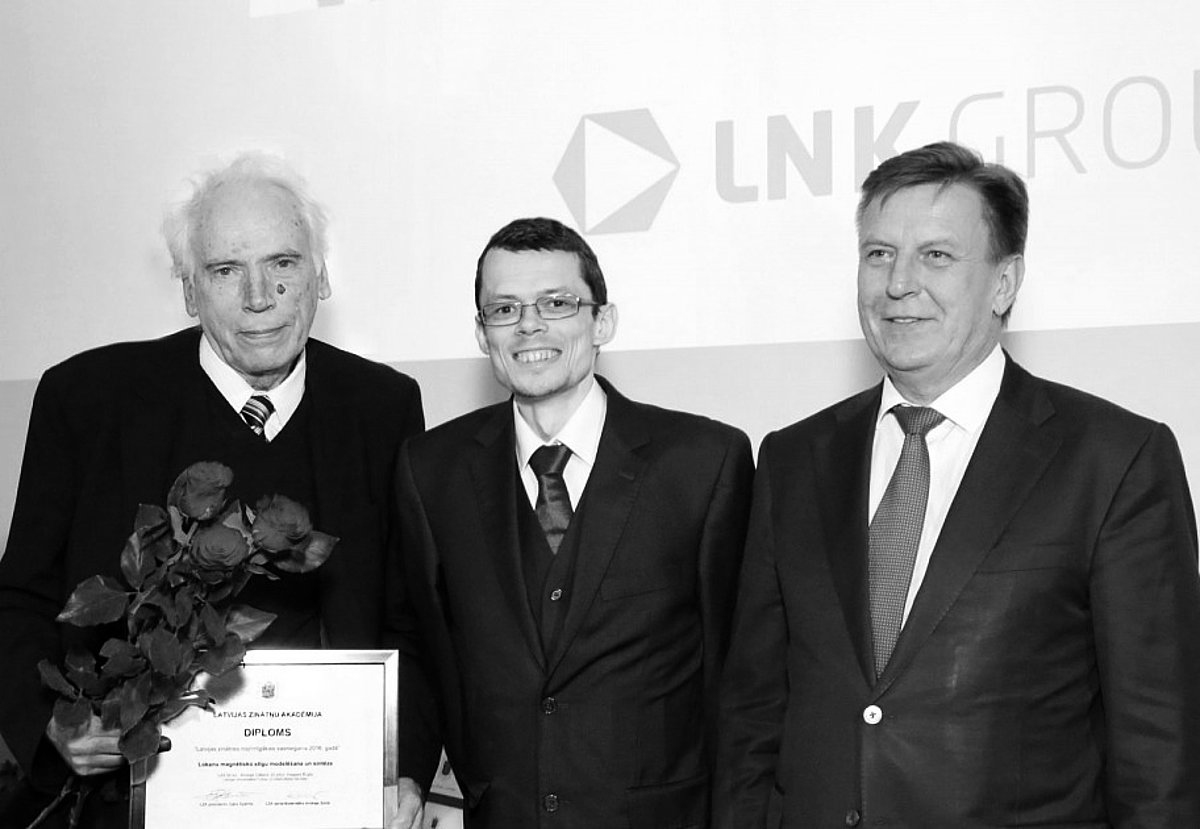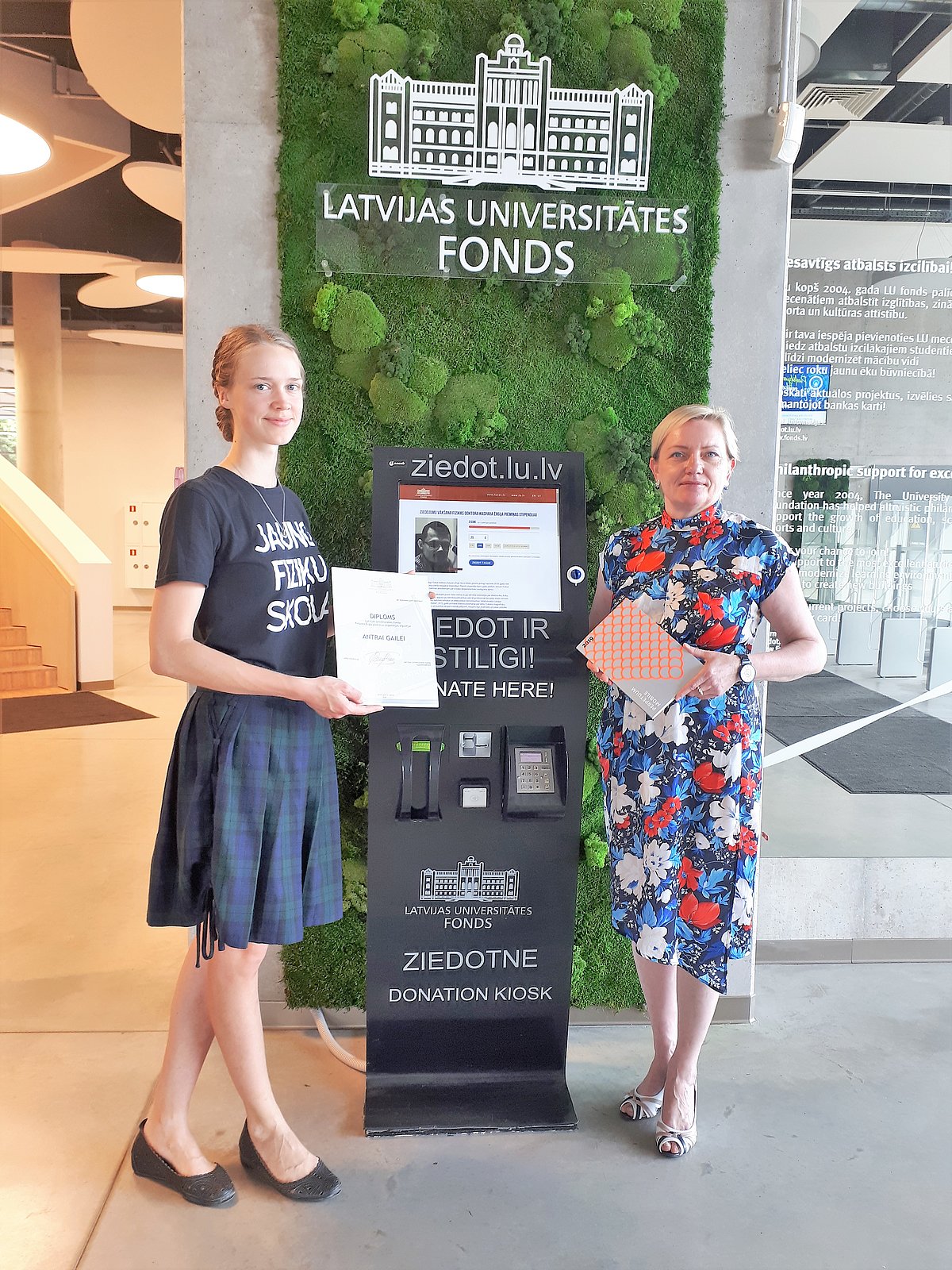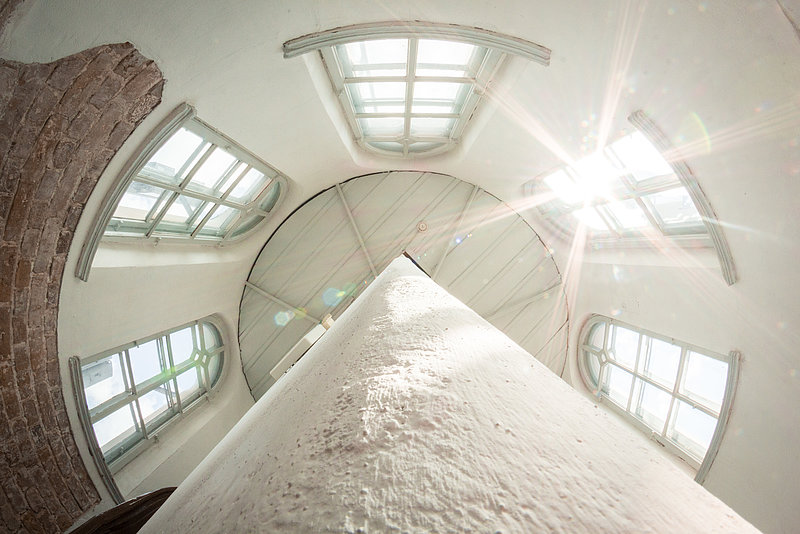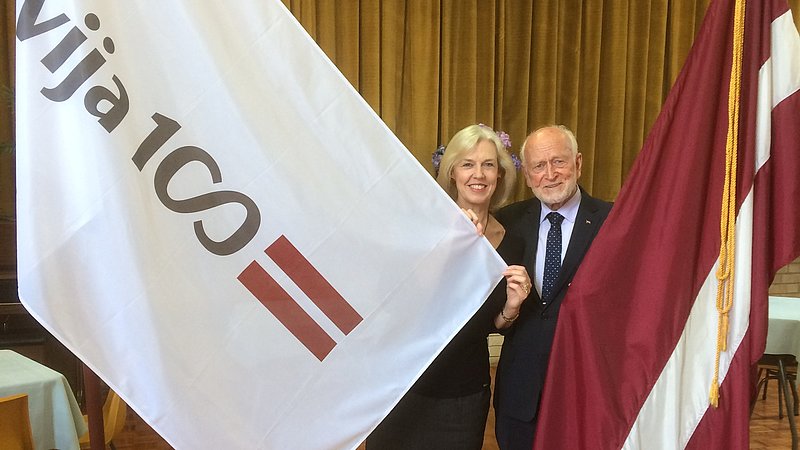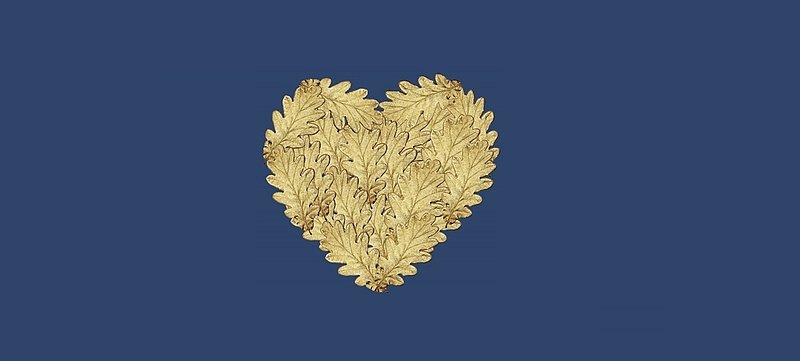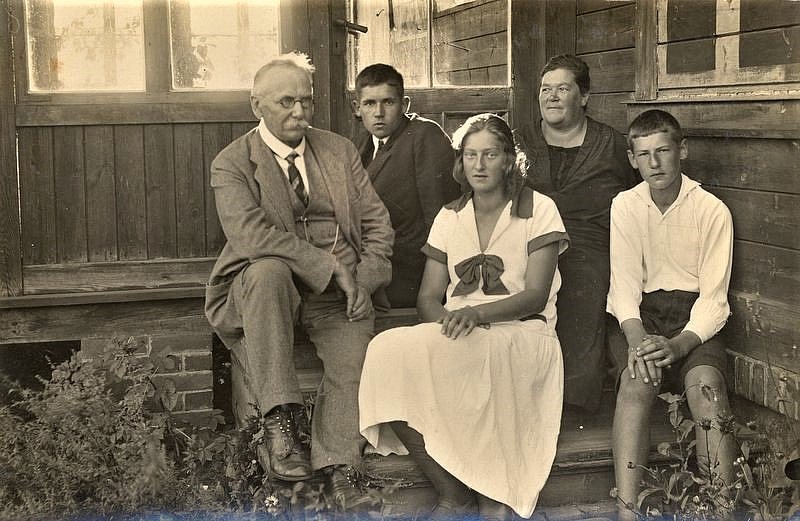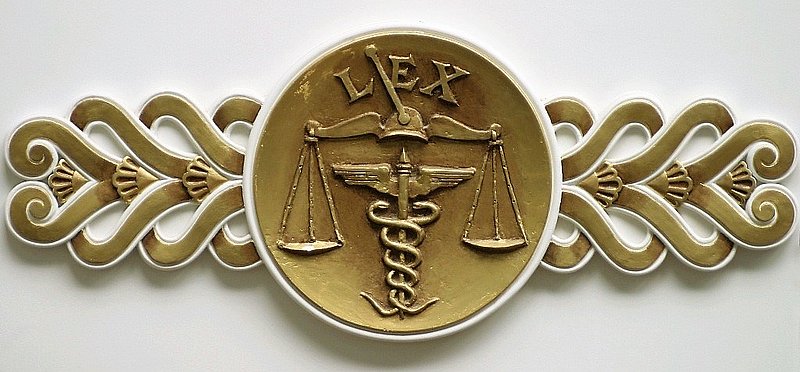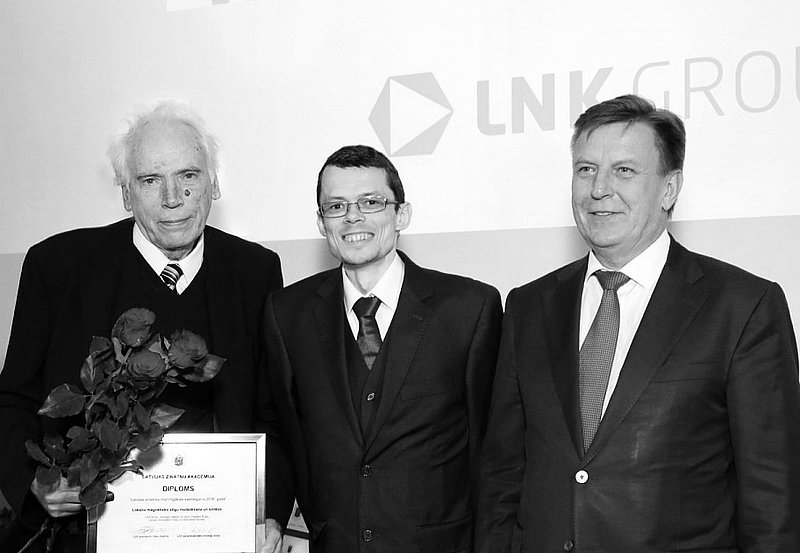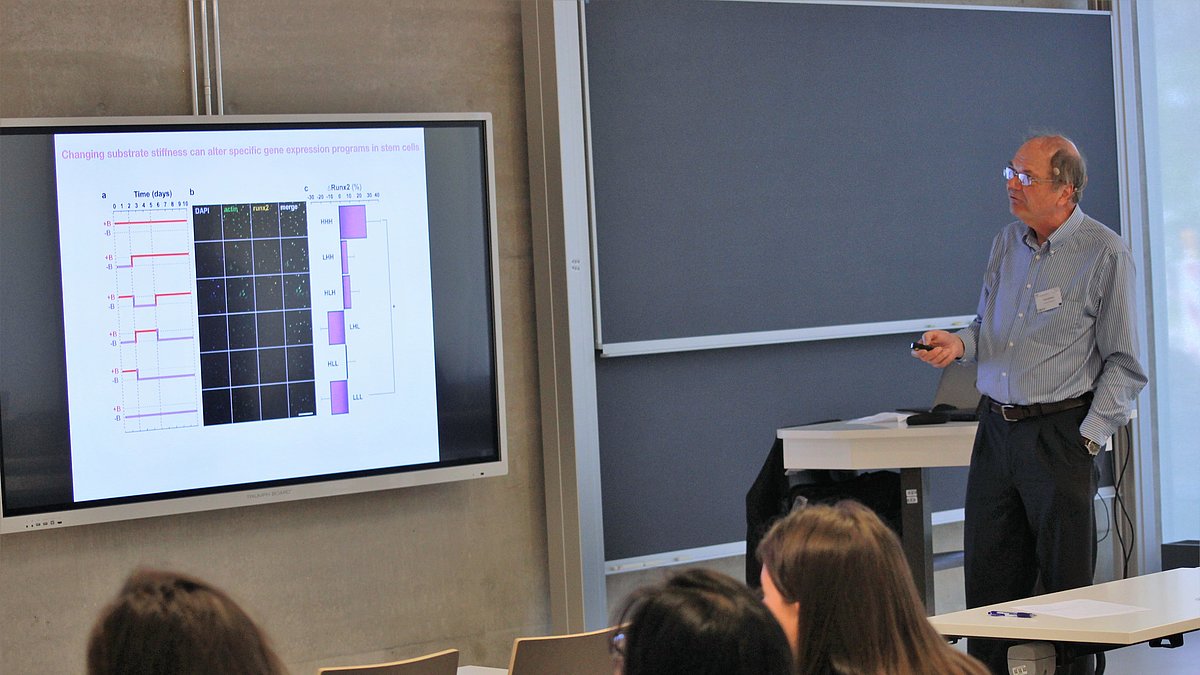
Scientist, Professor Paul Albert Janmey (1953) was born in Cleveland, USA, in a Latvian family. While studying at the Oberlin College, he was granted a scholarship that helped him to obtain higher education and build a successful career in science. Janmey says: “Today, I have a chance to support someone. I can help a student during the time of studies.”
“We need to help the youth to research, study and do something new. Working in a team is very important, because then you can achieve more,” says the professor, telling us about his motivation to contribute to the scholarship. He reflects: “The cost of studying in the USA today is very high and not many of those who want to study, or their families can afford that. Talent is not tied to salary or affluence. We can only hope that this doesn’t occur in Latvia.”
He received a doctoral degree in physical chemistry (1982) from the University of Wisconsin. At present, Professor Janmey is working at the Perelman School of Medicine, the University of Pennsylvania. In 2018, the University of Pennsylvania received the fourth place in Reuters Top 100 of the most innovative universities in the world. Professor Janmey is an outstanding specialist of cell biology. His extensive portfolio holds 300 scientific publications, 49 reports and 16 patents. The professor has an incredibly high Hirsch index (h-index = 104), which objectively attests to his international scientific contribution. Janmey first started his work as a lecturer at the Faculty of Medicine, Harvard University.

Prof. Paul A. Janmey meets Prof. Andrejs Cēbers during the visit of the University of Latvia in July 2019. Photo from the UL Foundation’s private archive.
International interdisciplinary collaboration
The field of research is related to the study of molecular mechanisms regulating cell operation – the main professor’s interests include the research of cytoskeleton, phosphoinositide signalling and cell mechanics. Since Latvia has regained its independence, Prof. Janmey has worked in close cooperation with our country – at first with the Institute of Organic synthesis (IOS), later with the Department of Theoretical Physics at the UL FPMO. The initial collaboration was established and promoted by the chance of obtaining international grants between USA and Eastern Europe. Prof. Janmey has admitted that until then he did not personally know any scientists of Latvia. The key person was a Canadian of Latvian origin, biology professor Vitauts Kalniņš.
In 2019, Paul A. Janmey received the Honorary Doctor’s degree from the University of Latvia (Doctor honoris causa Universitatis Latviensis) for his outstanding achievements in biophysics, a long term collaboration with UL in microrheology of materials of biological origin, research about mobility of microorganisms, and the intellectual and material support in establishing Laboratory of Magnetic Soft Materials. The professor has proudly printed out the 25.03.2019. Decision No. 289 of the UL Senate attesting to this event and put it up on the wall in his office at the University of Pennsylvania.
Latvians in Cleveland
Janmey family finds its roots in Kuldīga. Parents of Paul Janmey were born in Latvia, but fate brought them together in a fugitive camp in Germany. They started a family in USA. Paul Janmey first visited Latvia in 1978, while studying, but a stronger collaboration was developed with assistance of extensive interdisciplinary scientific projects after the renewal of independence.
Professor remembers that the entire generation of his parents spoke only Latvian at home. Therefore, he is fluent in Latvian and speaks without an accent. Janmey tells us that the main place of getting together for the Latvian community was their congregation, where he had a chance to meet other Latvians from all over the country. The youth could learn history, geography and obtain further knowledge of his parents’ home country. Prof. Janmey noticed that in comparison with other nations Latvians did not have a tradition of sticking together in everyday life. They lived all over the place and only gathered in certain events.

Dr. phys. Kaspars Ērglis and Academician of Latvian Academy of Science (LAS) Prof. Andrejs Cēbers receiving LAS “Science Award 2016” for their study “Flexible magnetic string modelling and synthesis”. Left to right: Prof. A. Cēbers, K. Ērglis and the Prime Minister of Latvia Māris Kučinskis.
From conversation to formation of a laboratory
Head of Theoretical Physics Department and Laboratory of Magnetic Soft Materials (LMSM) at the UL FPMO, Prof. Dr. phys. Andrejs Cēbers delightedly remembers meeting Paul Janmey in the mid-1990s: “We met in a compelling circumstances in Paris, when one of the most excellent Latvian scientists, Prof. Agris Gailītis, presented a lecture at the Sorbonne University. It was about the Riga Dinamo experiment – spontaneous generation of magnetic field in sodium streams. A lot of people knew about this lecture, and Paul was right there next to French physics prominences because of his interest in Latvian science. During the lecture I began asking my doctoral students questions in Latvian. Paul heard that and asked me in clear Latvian, if there were more of us, to which I responded that, indeed, there were a lot. That’s how we met. And agreed to meet again.”
Prof. Cēbers continues to explain the significance and possibly even fatefulness of his meeting Prof. Janmey: “During conversation it turned out that we had similar scientific interests that related to environmental physical qualities of biological origin. Soon after that I visited Paul at the University of Pennsylvania for the first time. Then we wrote our first shared publication about electrostatic instabilities of domain membranes. Subsequently we decided to develop an experimentational laboratory (at present, LMSM) in Theoretical Physics Department of FPMO to experimentally verify different theoretical outputs. Paul played a great role in this. The first laboratory equipment was bought with help of the “Fogarty” project that he provided. It included equipment for creating laser pincers, a microscope, an ultracentrifuge, computer technology etc. Kaspars Ērglis took over these devices which assisted him in the development of his doctoral dissertation.”

Prof. Paul A. Janmey taking part in LMSM scientific workshop “Magnetism and life” at the University of Latvia (15. – 17.05.2019.) Photo from LMSM archive.
Prof. Janmey and Prof. Cēbers remember with a smile, how they found unconventional solutions to bring the necessary equipment for the laboratory development from abroad to UL FPMO – their luggage consisted of immense bags, a heavy centrifuge that weighs about 150 kg was also transported in this manner.
In 2006, with the support of Prof. P. Janmey, the professor of FPMO A. Cēbers enrolled internship in the University of Pennsylvania as a Fulbright scholar. Consuming and extensive research about membrane tension electrostatic component and magnetic bacteria motion regularity in magnetic field was done during the exchange.
The last study, whose experimental part Kaspars Ērglis implemented in Riga, but produced the theoretical results in Prof. P. Janmey laboratory in Philadelphia, has obtained a significant international attention. “In later years, Paul and I, with the help of Kaspars, published numerous works about physical properties of biopolymers. Research of ferrogels that have prospective uses in cell biology take place now,” tells Prof. Cēbers.
Kaspars Ērglis – unique personality that will continue to inspire
Dr. phys. Kaspars Ērglis (1976–2018) actively contributed noteworthy world-class achievements to research. His talents, as well as the sharp and creative mind were revealed in the academic year 2005/2006, when he was a student of physics and mathematics, receiving the memorial scholarship of Minna M. V. Petkevičs administered by the UL Foundation. Colleagues remember Kaspars as a unique personality in science of Latvia – he easily completed mechanic work in development of experimental equipment. That included milling, turnery and creating necessary electronic collateral, as well as working on its software. If needed, Kaspars also worked in the field of chemistry, for example, synthesizing flexible magnetic strings, etc. In combination with a profound understanding of physics, Kaspars could implement a lot of interesting studies about magnetic bacteria, viscoelastic qualities of bacteriophage gel, flexible magnetic strings and developing equipment for laser pincers, although, he did not manage to complete the latter. “Researchers with skills of this extent are very rare. The much-too-early passing of Kaspars Ērglis is a great loss for the laboratory and Latvian science as a whole. Consequently, we decided to dedicate a scholarship to his memory,” says Prof. Cēbers and continues by noting that “the example of Kaspars is an excellent model for young researchers. If they developed the skills that Kaspars had, the results would be guaranteed. It is a difficult and long path, but they should not falter to embark upon it.”

Scholarship recipient Antra Gaile. Photo from the private archive of UL Foundation.
Remembering Kaspars Ērglis, Prof. Janmey tells us that they shared three publications: “Modern physics is so difficult that we manage different devices. You can only do that in a team. It is impossible to develop a project singlehandedly. It is important to share advice, complete experiments, share interdisciplinary knowledge.”
Scholarship recipient – woman in science
The first K. Ērglis scholarship went to graduate of UL FPMO physics bachelor’s study programme Antra Gaile. Her work was selected by the committee of physics bachelor’s final examination out of 21 others. In her work, she experimentally researched electromagnetically suggested surface waves on the surface of liquid metal. This thesis is a small part of a bigger project that aims for estimating the efficiency of silicon purification by using electromagnetic methods. Antra introduces us to the course of research: “Simultaneously with some successful and unsuccessful measurements, I obtained beautiful pictures and videos. Those characterised the surface deformations we can achieve with this method.” The supervisor of this work was the researcher Mikus Milgrāvis.
“This scholarship is a boost for me, because my efforts have been rewarded – a girl does have a place in science. This attests to the high level of the laboratory, group and the hard work of the supervisor, because nowadays every experimental breakthrough is a fruit of the labour done by a group,” says Antra. Besides, the young and talented physicist has received the scholarship of Salaspils municipality for three years, as well as received the prestigious title “Phys-Math of 2019”. In the academic year 2016/2017, when Antra started her physics and mathematics studies, Salaspils municipality awarded their scholarship to her under the administration of the UL Foundation. The aim was true – Antra proved herself as a dedicated, socially active person with excellent study achievements. She will continue her education at the University of Latvia.

 Academic Centre
Academic Centre